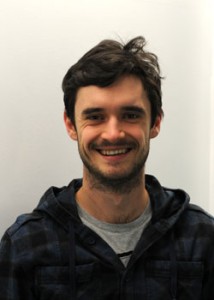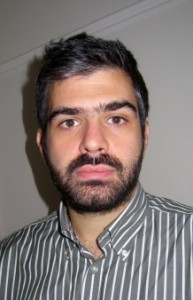University of Sheffield
 The University of Sheffield (USFD)
is a leading global university and one of the largest in the UK with
over 25’000 students from over 120 countries. Its research in the arts
and humanities, engineering, medicine, science and social sciences,
changes lives for the better and advances our understanding of what it
means to be human. The University of Sheffield has a global reputation
for teaching and research, ranked 13th in the UK and 38th in Europe in
the 2012-13 Times Higher Education World University Rankings, and 66th
in world in the 2012 QS World University Rankings; it was the Times
Higher Education University of the Year 2011. Sheffield is home to
24,000 of the brightest students in the world. Twenty-four per cent of
them come from outside the UK. Our graduates and former staff include
five Nobel Prize winners, an Olympic gold medallist and Britain’s first
female astronaut.
The University of Sheffield (USFD)
is a leading global university and one of the largest in the UK with
over 25’000 students from over 120 countries. Its research in the arts
and humanities, engineering, medicine, science and social sciences,
changes lives for the better and advances our understanding of what it
means to be human. The University of Sheffield has a global reputation
for teaching and research, ranked 13th in the UK and 38th in Europe in
the 2012-13 Times Higher Education World University Rankings, and 66th
in world in the 2012 QS World University Rankings; it was the Times
Higher Education University of the Year 2011. Sheffield is home to
24,000 of the brightest students in the world. Twenty-four per cent of
them come from outside the UK. Our graduates and former staff include
five Nobel Prize winners, an Olympic gold medallist and Britain’s first
female astronaut.
The University of Sheffield has a long-standing tradition of collaborative research with groups in the UK and overseas and has much experience in managing large European research projects. The University of Sheffield has 240 live projects in FP7 with a further 65 in negotiation. These projects span all funding instruments and include many projects where The University of Sheffield is the coordinator. In 2010/11, The University of Sheffield’s total research income, excluding annual government grants, was more than €100 million.
The Faculty of Social Sciences is a large and diverse grouping of thirteen departments, including ‘classical’ social science departments, but also several other major subject areas, some of which are distinctive to Sheffield. Moreover from October 2014, the Faculty will host the Sheffield Methods Institute, which will operate as a stand-alone unit alongside other departments in the Faculty. The Institute was launched to enable the delivery of a range of interdisciplinary programmes, including programmes on quantitative methods supported by funding via our successful bid to the Nuffield Foundation / Economic and Social Research Council (ESRC) / Higher Education Funding Council for England (HEFCE) Q-Step programme. This rich and exciting disciplinary mix, encompassing both world leading academic research and education and also a strong practitioner focus in particular areas, uniquely positions the faculty among Sheffield’s peer institutions.
In LIVEWHAT, research work is conducted by the Department of Politics. The Department of Politics is one of the UK’s most successful centres for teaching and research in the UK. This was confirmed in the 2008 Research Assessment Exercise (RAE), when the Department was ranked first equal amongst all politics departments in the UK. Teaching is closely aligned with research interests and staff and postgraduates work closely together to share ideas. The Department has a lively culture of intellectual exchange, particularly, in the context of the Department’s four research groups and workshops: Governance and Participation, Political Economy, International Politics, Political Theory and Global Justice.
Members of the UK team
Dr Maria Teresa Grasso is the principal investigator of the UK team. Since September 2011 she is a Lecturer in Politics and Quantitative Methods at the Department of Politics, University of Sheffield where she is also the coordinator of the Governance and Participation Research Group. She holds a BA (Hons) in Philosophy, Politics and Economics (2005), an MSc in Sociology with Distinction (2006), and a doctorate (2011, Nuffield College) from the University of Oxford. In 2005, she was awarded an Economic and Social Research Council (ESRC) “1+3” Studentship Award to fund her graduate studies. Between 2009 and 2011 she worked as a Research Fellow on the ESF/ESRC-funded collaborative European survey project Caught in the Act of Protest: Contextualizing Contestation (see: www.protestsurvey.eu). Dr Grasso has had her work accepted in Electoral Studies, Mobilization, and Work, Employment, and Society among others and has a volume on Austerity and Protest (co-edited with Marco Giugni) forthcoming with Ashghate. Her main research interests are in political behaviour, socio-political attitudes and social change and her academic work deals primarily with quantitative research and statistical analysis of cross-national surveys. For up to date info, visit her staff page here: www.sheffield.ac.uk/politics/people/academic/maria-grasso
 Luke Temple is
employed as the Research Assistant for the UK team and is a member of
staff of the Department of Politics. He holds a BA in Politics and
Geography (First Class Honours, 2008) and received funding to complete
an MSc in Social and Spatial Inequalities (Distinction, 2010) from the
Department of Geography, University of Sheffield. In 2010 he was awarded
an ESRC +3 Studentship Award to undertake his PhD, which is planned for
completion in June 2014. The thesis takes a multinational comparative
approach to examine how ordinary citizens understand the concept of
democracy and uses the World Values Survey and multi-level regression
techniques, undertaken in STATA. Luke’s interests lie in comparative
politics, democratization, political participation and quantitative
methods. During his PhD candidacy he has completed an ESRC-funded
internship at the Scottish Government in the Strategic Research team,
and a 6-month position as a Teaching Associate in Quantitative Human
Geography. He is co-ordinator of the Policy, Governance and Place
Research Group in the Department of Geography. His student profile can
be found at: www.sheffield.ac.uk/politics/people/academic/luke-temple
Luke Temple is
employed as the Research Assistant for the UK team and is a member of
staff of the Department of Politics. He holds a BA in Politics and
Geography (First Class Honours, 2008) and received funding to complete
an MSc in Social and Spatial Inequalities (Distinction, 2010) from the
Department of Geography, University of Sheffield. In 2010 he was awarded
an ESRC +3 Studentship Award to undertake his PhD, which is planned for
completion in June 2014. The thesis takes a multinational comparative
approach to examine how ordinary citizens understand the concept of
democracy and uses the World Values Survey and multi-level regression
techniques, undertaken in STATA. Luke’s interests lie in comparative
politics, democratization, political participation and quantitative
methods. During his PhD candidacy he has completed an ESRC-funded
internship at the Scottish Government in the Strategic Research team,
and a 6-month position as a Teaching Associate in Quantitative Human
Geography. He is co-ordinator of the Policy, Governance and Place
Research Group in the Department of Geography. His student profile can
be found at: www.sheffield.ac.uk/politics/people/academic/luke-temple
Barbara Buraczynska a is a PhD student at the Department of Politics, University of Sheffield. She is funded by an Economic and Social Research Council (ESRC) “1+3” Studentship Award and is supervised by Dr Maria Grasso. Previously, she obtained a BA in International Relations and Politics (First Class Honours) and an MA in Politics with Research Methods with Distinction both from the Department of Politics, University of Sheffield. Her undergraduate and MA dissertations were both awarded Distinctions and focused on the application of quantitative methods to understanding inter-state conflict (UG) and prejudice towards different social groups (MA). Barbara is interested in survey methods, survey design, advanced quantitative methods. She is very familiar with STATA and SPSS and is starting to learn R. She is a member of the Governance and Participation Research Group at the Department of Politics. Her doctoral thesis applies event history analysis and other advanced quantitative methods to investigate the impact of conflict involvement on the domestic structures of states, particularly the connection between war and domestic power centralization. Apart from working on her doctoral thesis, she is a teaching assistant and seminar tutor for quantitative methods modules at the Department of Politics. See also: www.sheffield.ac.uk/politics/people/research/barbara-buraczynska
 Patrick English
is a Masters in Politics with Research Methods student at the
Department of Politics, University of Sheffield. Previously, he obtained
a BA in Politics and Philosophy from the Department of Politics,
University of Sheffield. His undergraduate and MA dissertations both
focus on the application of quantitative methods to understanding public
perceptions of politics and political participation under the
supervision of Dr Maria Grasso. His undergraduate thesis studied the
relationship between years of democracy and attitudes to and
participation in protest action, and his MA dissertation will study the
relationship between participation in NGOs and political trust. Patrick
is interested in survey methods, survey design, advanced quantitative
methods, and public perceptions of politics and political institutions.
He uses STATA and SPSS regularly and is starting to learn R. He is a
member of the Governance and Participation Research Group at the
Department of Politics, and has published work on his time spent working
with various public institutions, developing their public perception
improvement and public engagement strategies.
Patrick English
is a Masters in Politics with Research Methods student at the
Department of Politics, University of Sheffield. Previously, he obtained
a BA in Politics and Philosophy from the Department of Politics,
University of Sheffield. His undergraduate and MA dissertations both
focus on the application of quantitative methods to understanding public
perceptions of politics and political participation under the
supervision of Dr Maria Grasso. His undergraduate thesis studied the
relationship between years of democracy and attitudes to and
participation in protest action, and his MA dissertation will study the
relationship between participation in NGOs and political trust. Patrick
is interested in survey methods, survey design, advanced quantitative
methods, and public perceptions of politics and political institutions.
He uses STATA and SPSS regularly and is starting to learn R. He is a
member of the Governance and Participation Research Group at the
Department of Politics, and has published work on his time spent working
with various public institutions, developing their public perception
improvement and public engagement strategies.
 Sotirios Karampampas
is a PhD student at the Department of Politics, University of
Sheffield. He holds a BA in Political Science and Public Administration
from the University of Athens (2008), and a MA in International Politics
and Security Studies with Distinction from the University of Bradford
(2009). His doctoral thesis employs a multi-method approach, including
protest event analysis, semi-structured interviews and qualitative data
analysis, in the study of revolutionary groups in Greece and Italy, and
is supervised by Dr Maria Grasso. His main research interests are in
political violence and terrorism, social movement theory, and the
political effects of the current economic crisis in Europe. Apart from
working on his doctoral thesis, he is also a teaching assistant and
seminar tutor for international relations and security studies modules
at the Department of Politics. University page: www.sheffield.ac.uk/politics/people/research/sotirioskarampampas
Sotirios Karampampas
is a PhD student at the Department of Politics, University of
Sheffield. He holds a BA in Political Science and Public Administration
from the University of Athens (2008), and a MA in International Politics
and Security Studies with Distinction from the University of Bradford
(2009). His doctoral thesis employs a multi-method approach, including
protest event analysis, semi-structured interviews and qualitative data
analysis, in the study of revolutionary groups in Greece and Italy, and
is supervised by Dr Maria Grasso. His main research interests are in
political violence and terrorism, social movement theory, and the
political effects of the current economic crisis in Europe. Apart from
working on his doctoral thesis, he is also a teaching assistant and
seminar tutor for international relations and security studies modules
at the Department of Politics. University page: www.sheffield.ac.uk/politics/people/research/sotirioskarampampas


